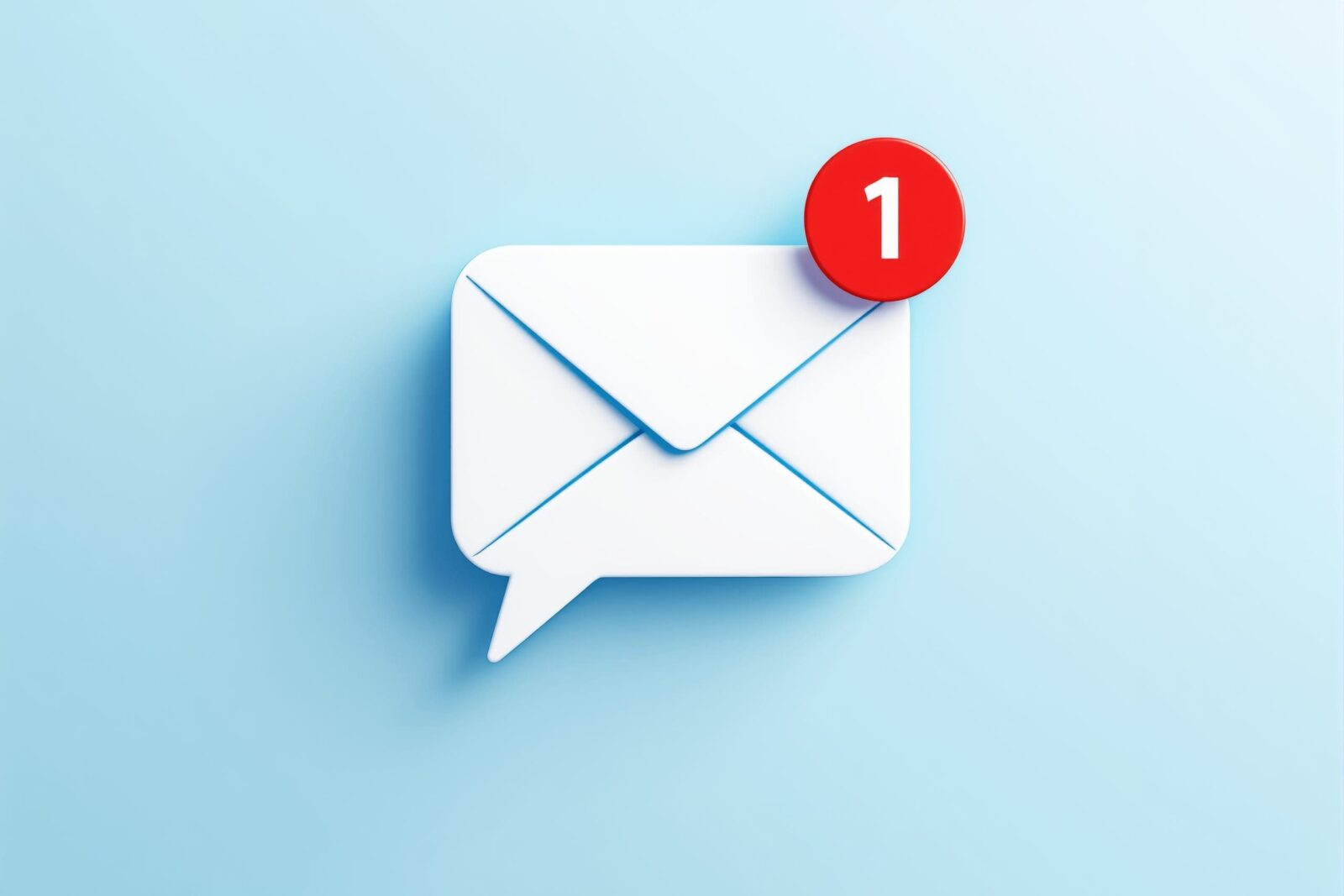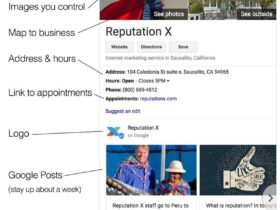Email remains a cornerstone of communication for both individuals and organizations. However, the type of email you use—personal or business—can substantially impact your online reputation, perceived professionalism, and brand values. The line between convenience and reputational risk is thinner than many realize.
For professionals, freelancers, and companies alike, choosing between personal and business email is not just about preference. It is critical in how customers perceive your credibility, integrity, and overall image. A strong reputation often begins with the fundamentals, including your communication channels. A poorly chosen email domain can result in a negative reputation that’s hard to reverse.
Why Email Type Matters
Using a personal email in a professional context might seem harmless, but it often conveys the opposite effect. Prospective customers, investors, and stakeholders may question your business’s legitimacy or perceived quality if you’re using a generic Gmail or Yahoo address. In contrast, a business email tied to your domain signals professionalism and trust—crucial components for a good reputation.
This distinction can shape public opinion, influence customer acquisition, and affect shareholder value. Reputation is significant in everything from attracting customers to retaining talented employees. A simple email domain can tip the scales between a positive and tarnished reputation.
The stakes are even higher in sectors where sensitive data is frequently shared—such as healthcare, finance, legal services, or real estate. The email platform you choose becomes a gateway to safeguarding confidential information, avoiding data leaks, and ensuring compliance with relevant regulations. These are not just technical concerns but essential to your overall reputation.
Personal Email: Flexibility with Risk
Personal emails are often easier to set up and more flexible. They allow for personalized settings, themes, and device access, which can appeal to individual users looking for convenience. However, using personal emails for business purposes increases exposure to data leaks, phishing scams, and legal vulnerabilities.
Without enterprise-level protections, personal accounts may lead to significant reputational damage in the event of a breach. For example, a data leak tied to an individual account could result in negative articles, criticism from social media platforms, and lost revenue.
Moreover, mixing business and personal correspondence can cause confusion and blur boundaries. It can open the door to ethical violations, expose confidential company data, and damage your company’s overall reputation. Once a negative perception forms, regaining a strong reputation becomes more difficult.
Business Email: The Foundation of a Strong Online Presence
A business email is more than a communication tool—it represents your brand values. When managed effectively, it supports your brand reputation by demonstrating consistency, professionalism, and transparency. These are all key factors in building a strong online presence.
Business email systems typically offer encryption, multi-factor authentication, compliance controls, and data retention policies—each playing a crucial role in online reputation management. These tools protect sensitive data and enable companies to respond quickly to threats or adverse events.
Documenting communication properly through secure servers adds credibility and helps in crisis management scenarios. It supports legal compliance and provides a structured framework to deal with negative feedback and other forms of reputational risk. Without this structure, a company’s reputation can quickly suffer setbacks, especially in public-facing roles or highly regulated industries.
How Customers Perceive Email Types
Your choice of email communicates something before you even say a word. A branded business email reassures potential customers that you’re legitimate and professional. On the other hand, using a personal email can cause skepticism, mainly when asking for sensitive information or conducting transactions.
This subtle yet impactful choice plays a significant role in shaping your online reputation. It affects how your target audience engages with your brand, marketing campaigns, and social media channels. A business email aligns with your overall reputation strategy and reinforces trust across all touchpoints.
Inconsistent communication practices can create confusion, trigger concern among stakeholders, and ultimately harm your credibility. Over time, these cracks in consistency can lead to a bad reputation that hampers customer acquisition and employee retention. On the contrary, a cohesive approach to communication, supported by a business email, strengthens brand recognition and builds long-term trust.
Branding, Trust, and Perceived Quality
Business emails support brand recognition and credibility. They signal that you take your business seriously and value your customers’ trust. Inconsistent email usage, by contrast, can have the opposite effect—eroding trust and diminishing perceived quality.
Email branding also helps align your communication with your marketing efforts, including social media profiles and advertising campaigns. It reflects your commitment to being socially responsible, responsive, and secure—important traits in an age where online reviews and social media comments spread quickly.
Customers are more likely to engage with businesses they perceive as trustworthy and stable. A branded email helps shape this perception, supporting customer loyalty and increasing the chances of attracting customers through positive word of mouth. In contrast, a poor reputation built on inconsistent or unprofessional communication habits can reduce engagement and reputational damage.
Risks of Using Personal Email for Business
- Lack of Professionalism: A personal email can signal a lack of structure or seriousness, making it harder to gain credibility with potential customers. This could lead to reduced conversions, negative reviews, or even damaged client relationships.
- Security Concerns: Without advanced protections, personal emails are more vulnerable to breaches, phishing, and spam—each of which can lead to negative feedback or reputational harm. A single data breach could compromise your brand reputation and result in significant financial losses.
- Legal Exposure: Using personal accounts for business may subject them to subpoenas or FOIA requests, increasing the risk of reputational damage through public scrutiny. Legal exposure can also attract media attention and criticism from social media platforms, amplifying reputational risk.
- Confusion and Overlap: Combining personal and professional communications can lead to disorganization and miscommunication, increasing the risk of misleading customers or mishandling sensitive company information. This confusion can compromise operational efficiency and damage internal accountability.
Benefits of Business Email for Reputation Management
- Consistency: A standardized business email reinforces brand identity and creates a cohesive experience for your target audience.
- Trustworthiness: Business emails convey a sense of legitimacy and are often seen as more secure and reliable.
- Crisis Management: In the event of negative perception or backlash, business email systems allow for faster, more coordinated responses.
- Data Control: With dedicated servers and enterprise-level policies, companies retain control over their communications, which is crucial during audits, investigations, or online reputation challenges.
- Customer Retention: Clear, branded communication builds lasting relationships and supports higher customer retention rates.
- Reputation Recovery: In a reputational crisis, businesses with solid email infrastructure are better equipped to communicate transparently, take responsibility for past actions, and rebuild trust.
Conclusion: Email Is a Reputation Strategy
Your email address isn’t just a technical choice—it’s a key factor in your overall reputation. How you manage email plays a significant role in protecting your brand reputation, maintaining customer loyalty, and avoiding the negative impact of bad reputation triggers like data leaks or negative reviews.
A strong reputation starts with the basics. Choose the proper email infrastructure to protect your image, align with your brand values, and enhance your ability to attract new customers and increase customer loyalty. In a world where your reputation precedes you—and search engines, online reviews, and social media define public opinion—your email address speaks louder than you think.
Make business email part of your online reputation management strategy. It’s one of the most cost-effective tools to reinforce a positive reputation, maintain control over communications, and secure a competitive advantage in your industry.















